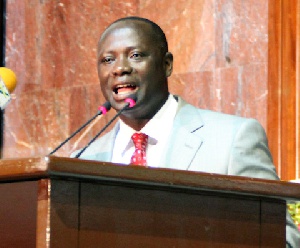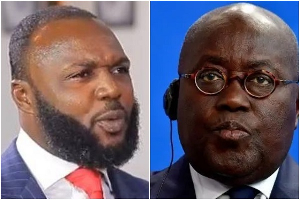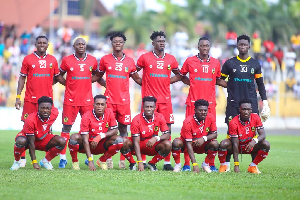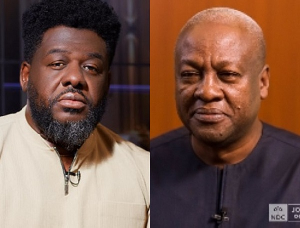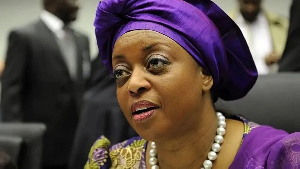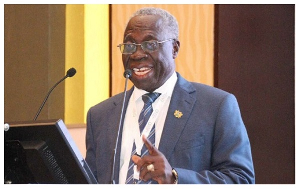Energy Minister, Emmanuel Kofi Buah has singled out "inadequate supplies of gas" as the single most important challenge facing the country's power sector, and indicated that this has been the focus of his efforts since he assumed office.
In a recent interview, the Minister said the lack of adequate and reliable supplies of gas is more pressing than any other matter facing the Ministry and the sector.
He outlined the sources of gas as the West Africa Gas pipeline, the Jubilee Field, the TEN Field (where the second FPSO is being built) and the Sankofa Field, where the third Plan of Development is being finalised.
On the West Africa Gas pipeline, the Minister said it is clear that it cannot provide the amount of gas needed to fire Ghana's power plants at VRA and the Independent Power Producers - CENIT Energy and Sunon Asogli. Mr BUAH said the delay in Ghana's own gas from Jubilee has compounded the problem, and he is doing everything in his power “to ensure that Jubilee Gas comes on stream this year”.
The Minister said if there is anything Ghanaians must learn from the gas situation, it is that gas security can only be assured through the development of Ghana's own gas resources and the introduction of Liquified Natural Gas (LNG), which can be stored because it's been liquified. Government, he said, is seriously considering the LNG option -- which will require the construction of a plant to turn the liquid gas back to its gas form for piping to power plants. Government, he said, is in discussion with several companies on this project.
On the TEN Field, the Minister said the Ministry prioritised approval of the Plan of Development early last year to enable the operator, Tullow Oil, to go ahead with production; and he is hopeful that this will be another sure supply of gas by 2016.
The Sankofa Field, a field solely containing commercial gas and not crude oil, is the third and most promising gas field that he expects to come into production by 2017. The Italian firm ENI is the government’s partner on Sankofa. "We are working aggressively to conclude the Plan of Development to kick-start this project," said Buah.
Experts say that given the rate of demand for electricity, Ghana must add at least 250MW of power to its grid each year. The trouble is that the power producers needed to keep up the power supply are not going to invest in it unless they can be certain of the availability of fuel to fire their plants.
Minister Buah said he is committed to solving the power crisis. "Our slogan is simple: the lights must stay on. The two things that will get us there are what we have begin tackling -- gas availability and the right tariffs; and we are working on both".
Business News of Tuesday, 29 April 2014
Source: B&FT





